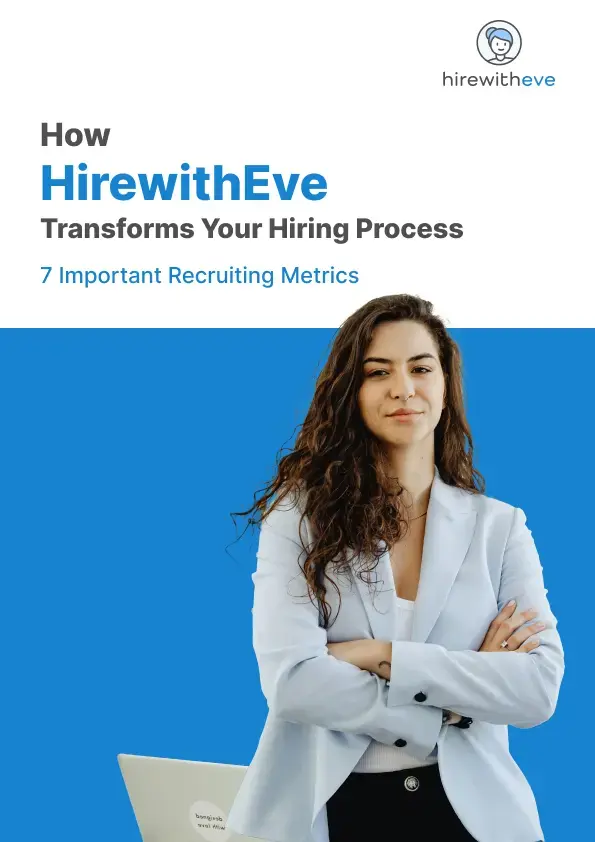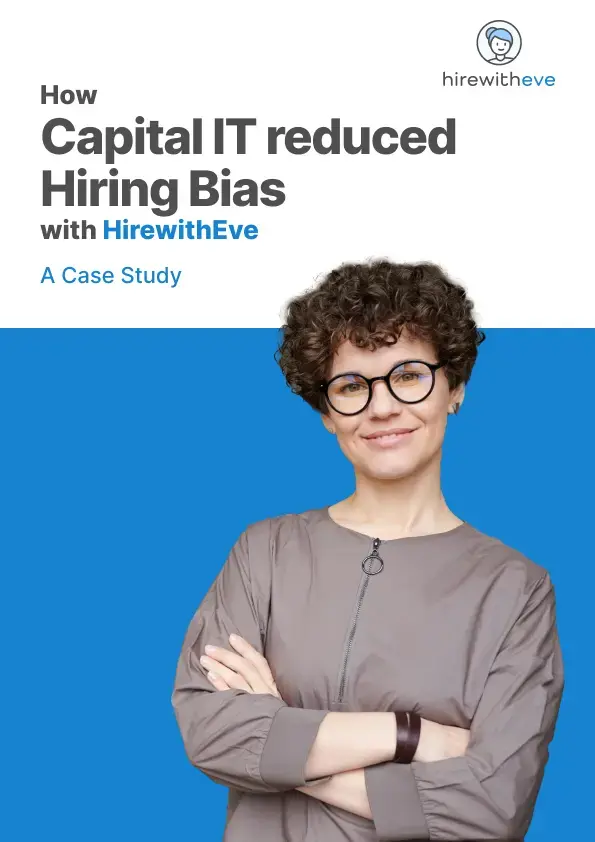Breaking down the barriers: Common Mistakes in Skills-Based Hiring

Breaking down the barriers: Common Mistakes in Skills-Based Hiring

What is Skills-Based Hiring?
Skills-based hiring is a recruitment strategy that focuses on identifying and evaluating candidates based on the specific skills and competencies they bring to the table, rather than their past job titles, degrees, or other traditional credentials. This approach recognizes that the ability to perform a job is more important than where someone has worked or what degree they hold. In today’s rapidly evolving job market, where technology and industry demands are constantly changing, this method of hiring has gained significant traction.
The Rise of Skills-Based Hiring in Today’s Market
As businesses navigate the complexities of a globalized workforce and the increasing demand for specialized skills, many are turning to skills-based hiring as a way to ensure they are selecting the best talent for their needs. This shift is not just a trend but a necessary adaptation to remain competitive and innovative. Skills-based hiring allows companies to tap into a broader and more diverse talent pool, focusing on what matters, the ability to get the job done.
Why Companies Are Shifting Focus
Traditional hiring methods, which often rely on resumes and degrees as the primary indicators of a candidate’s potential, are becoming increasingly inadequate. Many organizations are finding that these traditional markers do not always correlate with job performance. As a result, companies are beginning to prioritize skills over credentials, understanding that this approach leads to more effective and inclusive hiring practices.
Table of contents
Common Misconceptions About Skills-Based Hiring
The Impact of Misconceptions on Talent Acquisition
What Companies Should Do Instead
How HirewithEve Supports Effective Skills-Based Hiring
Conclusion
Common Misconceptions About Skills-Based Hiring
Misconception 1: Skills-Based Hiring is Only for Technical Roles
One of the most pervasive misconceptions is that skills-based hiring is only applicable to technical roles, such as software development or engineering. However, this approach is equally valuable across a wide range of industries and job functions. Whether in marketing, sales, customer service, or management, focusing on the specific skills required for a role can lead to better hiring outcomes.
Misconception 2: Traditional Resumes and Job Titles Are Enough
Many companies still rely heavily on resumes and job titles to evaluate candidates. However, these elements often fail to provide a complete picture of a candidate’s capabilities. Job titles can be misleading, and resumes can be embellished. By focusing solely on these traditional markers, companies risk overlooking candidates who possess the right skills but do not have the conventional experience.
Misconception 3: Skills Can Be Measured by Certifications Alone
Another common mistake is equating certifications with skills. While certifications can indicate a certain level of knowledge, they do not always reflect practical, hands-on experience or the ability to apply skills in a real-world context. Employers should be cautious about using certifications as the sole measure of a candidate’s abilities.
Misconception 4: Skills-Based Hiring Is Time-Consuming and Expensive
There is a perception that implementing a skills-based hiring approach is time-consuming and costly. However, with the right tools and strategies, this method can streamline the hiring process and reduce long-term costs by improving the quality of hires and reducing turnover rates.
The Impact of Misconceptions on Talent Acquisition
Limiting the Talent Pool
By adhering to outdated hiring practices, companies inadvertently limit their talent pool. Skills-based hiring opens up opportunities to a broader range of candidates, including those who may have non-traditional backgrounds or have acquired their skills through unconventional means.
Overlooking High-Potential Candidates
When companies focus too much on job titles and formal education, they often overlook candidates with high potential who possess the necessary skills but lack the conventional markers of success. This can result in missed opportunities to bring innovative and capable talent into the organization.
Inaccurate Candidate Evaluation
Relying on resumes and certifications alone can lead to inaccurate evaluations of a candidate’s suitability for a role. Skills-based hiring, on the other hand, allows for a more accurate assessment by focusing on what the candidate can do, rather than what their resume suggests they can do.
Reduced Diversity in Hiring
Traditional hiring practices can inadvertently perpetuate bias and reduce diversity within an organization. By focusing on skills, companies can create a more inclusive hiring process that values the unique abilities and perspectives that candidates from diverse backgrounds bring to the table.
What Companies Should Do Instead
Define the Right Skills for Each Role
To implement skills-based hiring effectively, companies must first clearly define the skills required for each role. This involves breaking down job descriptions into specific competencies and abilities, rather than relying on vague or generic qualifications.
Utilize Advanced Assessments
Advanced assessments, such as simulations, work samples, and skill-specific tests, are essential tools for evaluating a candidate’s true capabilities. These assessments provide a more objective measure of whether a candidate possesses the skills necessary to succeed in the role.
Embrace a More Inclusive Talent Acquisition Strategy
Skills-based hiring naturally aligns with inclusive hiring practices. By focusing on the skills required for the job, rather than the candidate’s background or education, companies can create a more equitable hiring process that opens doors to a wider range of candidates.
Incorporate Continuous Learning and Development
A key aspect of skills-based hiring is recognizing that skills are not static. Companies should invest in continuous learning and development opportunities for their employees, ensuring that their workforce remains adaptable and capable of meeting future challenges.
How HirewithEve Supports Effective Skills-Based Hiring
Comprehensive Candidate Assessments
The platform offers a range of assessment tools that go beyond traditional resumes and certifications. These assessments allow companies to evaluate candidate's practical skills in real-world scenarios, ensuring that they are hiring individuals who can perform the tasks required by the role.
Streamlined Remote Hiring Process
With the rise of remote work, HirewithEve provides tools that make it easier for companies to conduct skills-based hiring on a global scale. The platform supports remote assessments and interviews, allowing companies to tap into a worldwide talent pool without compromising on the quality of hires.
Data-Driven Insights and Analytics
HirewithEve also offers data-driven insights that help companies refine their skills-based hiring strategies. By analyzing hiring trends, candidate performance, and other key metrics, companies can continuously improve their approach and make more informed decisions.
Conclusion
The Future of Skills-Based Hiring
As the job market continues to evolve, skills-based hiring will only become more critical. Companies that fail to adopt this approach risk falling behind their competitors in attracting and retaining top talent. By focusing on skills, businesses can create a more dynamic and adaptable workforce that is capable of meeting the challenges of tomorrow.
Why HirewithEve is the Right Partner for your Talent Acquisition Needs
HirewithEve is uniquely positioned to help companies navigate the complexities of skills-based hiring. With its intelligent skills matching, comprehensive assessments, remote hiring capabilities, and data-driven insights, HirewithEve provides the tools and support necessary to implement an effective skills-based hiring strategy. By choosing HirewithEve, companies can ensure they are selecting the best talent for their needs, now and in the future.
Target Your Talent
Unlock tailored solutions for your recruitment and hiring needs with Eve Platform's extensive case study library.
Subscribe now to enhance your HR expertise and excel in your role.
Free Resources

Transforming Hiring: 7 Key Recruiting Metrics
Enhancing recruitment processes with data-driven insights for better hiring outcomes.

Reducing Hiring Bias with Hirewitheve.
Utilizing Hirewitheve to combat bias and streamline recruitment processes effectively.

Hiring Detail-Oriented Candidates
HirewithEve enhances hiring by accurately assessing candidate's attention to detail-oriented.
